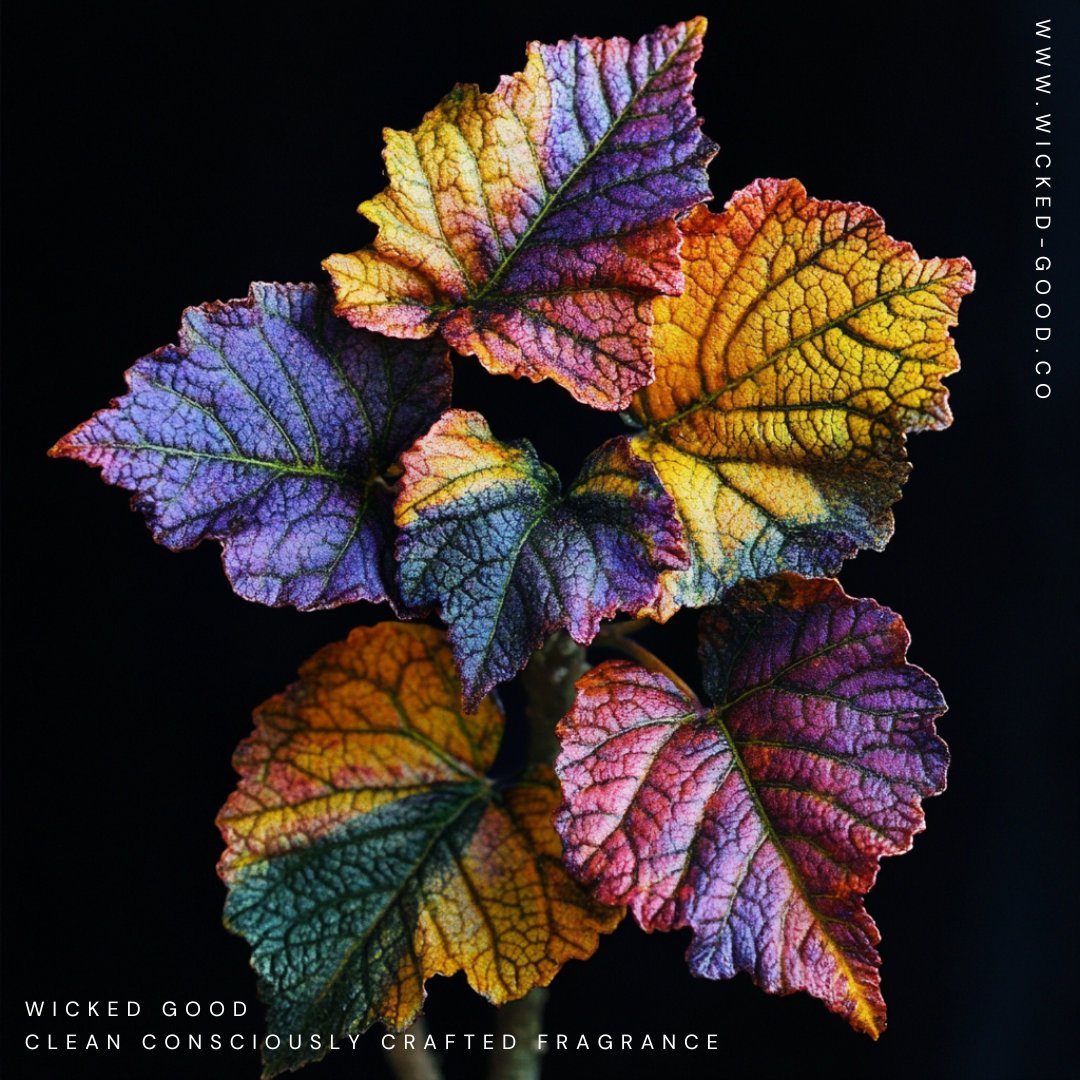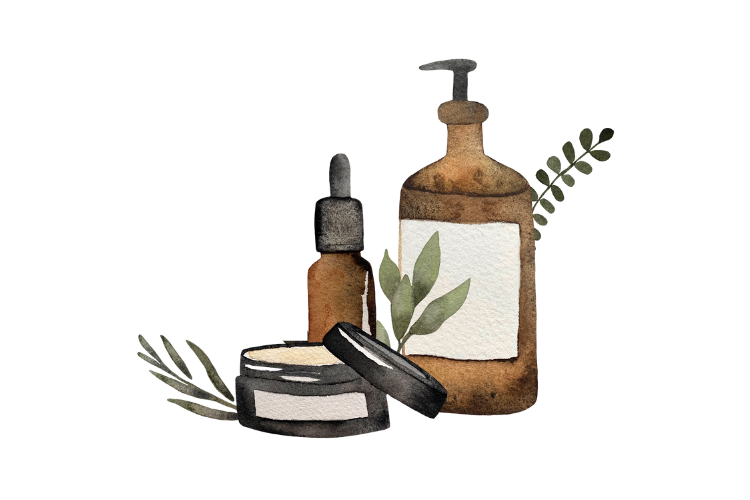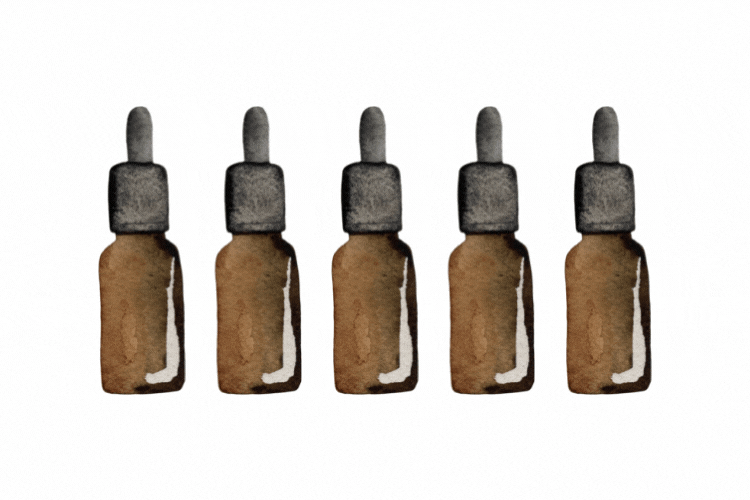The Most Controversial Scent Ever?!
Patchouli, patchouli, patchouli
The most controversial scent ever?! Patchouli! Some people absolutely love it and find it earthy, musky, and alluring, while others find it overpowering, musty, and quite possibly nauseating.
Patchouli is a plant that belongs to the mint family and is native to tropical regions of Asia. Its leaves are steam distilled to produce an essential oil that is used in perfumes, cosmetics, and aromatherapy -- with a long list of benefits to boot. Patchouli oil has a strong, earthy, and musky scent with hints of sweetness and spice.
In the 1960s and 1970s, patchouli became associated with the hippie counterculture movement and was used in incense, clothing, and other products. This association may have contributed to the love-hate relationship that some people have with patchouli.
Today, patchouli remains a popular fragrance note in many perfumes and colognes, and its use continues to be a topic of debate among fragrance enthusiasts.
Unveiling the Mystical History of Patchouli: From the Silk Road to the Hippie Movement, Discover the Seductive Scent's Journey Through Time
Patchouli has been used for centuries in Asia and the East, and its popularity spread to Europe during the Crusades in the 11-13th centuries. However, it wasn't until the Victorian era in England that patchouli began to be widely used in pot-pourris, creating an aromatic explosion that captivated the senses.
During the Second Empire in France, patchouli gained popularity when the demand for silk shawls from India soared. To protect the shawls from moths during shipment, patchouli leaves were used and the exotic scent became embedded in the fabrics. As a result, the scent of patchouli became a favorite among the "demi-mondaines" and "kept-women" of the time, but was frowned upon by high society women who saw it as the "antechamber of hell."
In the 60s and 70s, patchouli experienced a revival during the Flower Power movement. Its fragrance was used to cover the scent of cannabis, while also evoking an intimate eroticism linked to the sexual revolution and embodied by the Hippie movement. The scent of patchouli became a symbol of free-spiritedness, non-conformism, and individuality, resonating with a generation that sought to break away from the constraints of traditional society.
In summary, patchouli's rich history and cultural significance have made it a beloved fragrance note for generations. Its earthy and musky aroma, coupled with hints of sweetness and spice, create a complex and alluring scent that continues to captivate the senses and evoke powerful emotions.
Unlocking the Mysteries of Patchouli: Discover How Its Scentless Leaves Transform into the Fragrance We Love
Patchouli, in its primal state, is virtually scentless. To obtain its unique and complex fragrance, its leaves must be collected and set out to dry. This process allows odorant molecules to develop, creating the distinct patchouli scent that we know and love.
After the leaves are dried, they undergo steam distillation, yielding 2 to 3% of fragrance. The essential oil is then stored in barrels and undergoes a maceration period to concentrate the fragrance, which varies depending on the desired olfactory characteristics.
Patchouli's composition as a fragrance is incredibly diverse, with woody, camphorated, and earthy tones that make it ideal for use in woody, chypre, oriental, and leather fragrances. Its rich and powerful scent complements other ingredients in a perfume, making it a staple in the perfumer's palette.
Whether you're looking to add depth and complexity to a fragrance or create a bold and daring scent, patchouli's versatility and unique aroma make it an essential ingredient in the world of perfumery.
The Mysterious and Polarizing Scent of Patchouli: Unraveling the Complex Aroma of the Grounding and Calming Fragrance Note
Patchouli has a distinctive earthy, musky, and woody aroma. It is a complex scent that can vary depending on the quality of the oil and how it is used in a fragrance. Some people describe patchouli as having a sweet, spicy, or smoky undertone.
When used in perfumes, patchouli is often blended with other ingredients to create a unique fragrance profile. It is commonly paired with floral notes like rose or jasmine, as well as woody and citrus scents. In aromatherapy, patchouli is known for its grounding and calming properties, and it is often used in meditation or relaxation practices.
Overall, patchouli is a complex and unique scent that can be difficult to describe. Its distinct earthiness and muskiness make it a polarizing fragrance note that some people love and others dislike.
Journey Through Memories with Patchouli: From Forests to Markets and Music Festivals, Discover the Versatile Fragrance Note That Can Evoke It All
Patchouli is a versatile fragrance note that can evoke a range of sensations and memories. Some people associate patchouli with the scent of a forest during fall, with its earthy and musky notes blending seamlessly with the crisp autumn air. Others may find that patchouli reminds them of nature after it rains, with its fresh and damp scent bringing to mind the lush greenery and soil of the great outdoors.
For some, patchouli may conjure up images of a cool cave, with its earthy and mossy scent creating an atmosphere of mystery and intrigue. Others may associate patchouli with a bustling far east market, with its exotic spices and scents mingling in the air.
Thanks to its association with Woodstock and the 60s counterculture movement, patchouli may also bring to mind memories of a music festival, with its free-spirited and bohemian vibe. Whether you associate patchouli with the great outdoors, exotic markets, or cultural movements, this versatile fragrance note is sure to make a lasting impression.
Discover the Revolutionary History of Patchouli in Perfumery: From Traditional Pillar to Bold and Daring Overdose, See How Wicked Good Brings It to Life in Fragrances Inspired by Mugler's Angel and Chanel's Coco Mademoiselle
Patchouli has been a key traditional raw material for perfumery for over 100 years, long before its association with the hippie counterculture movement of the 1960s and 1970s.
In fact, patchouli is a pillar of one of the most elaborated perfume writing structures, the "Chypre," which is a blend of bergamot, rose, oakmoss, and patchouli. The structure is named after a fragrance called Chypre from Coty launched in 1917.
At Wicked Good, you can experience this structure in fragrances such as Adventus for Her and Coco Mademoiselle, which are two perfect examples of this very traditional use of patchouli.
However, patchouli is far from being stuck in the past century of perfumery. In fact, it has undergone two successive revolutions to become an indispensable, noble, rich, and mysterious ingredient in the perfumer's palette.
The first revolution, known as the Radical Revolution, took place in 1992 with the launch of Mugler's Angel, which is Wicked Good's Gourmand Patchouli. Mugler's Angel dared to use an overdose of patchouli blended with gourmand notes, creating a bold and daring fragrance that revolutionized the use of patchouli in perfumery.
The second revolution, known as the Gentle Revolution, took place in 2001 with the launch of Chanel's Coco Mademoiselle, which is Wicked Good's Coco Mademoiselle. Coco Mademoiselle took a more subtle approach to revamping the Chypre structure by decreasing one of the original pillars, oakmoss, while emphasizing the other main pillar, patchouli. This created a more relaxed structure, similar to the feeling of taking off your stilettos to put on your favorite pair of sneakers to take off running.
Since then, fragrances inspired by Angel and Coco Mademoiselle have emerged, all surfing on the revamped Chypre structure mixed with gourmand notes.
Patchouli is alive and well in the world of perfumery, and its versatility and unique scent continue to inspire and captivate fragrance enthusiasts around the world.































Leave a comment